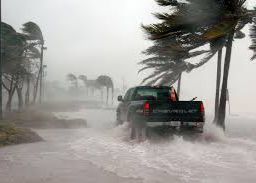
Men’s Health Risks St. Lucia: Prevention and Management Tips
Welcome to our guide on men’s health risks in St. Lucia. Here, we delve into the prevalent health challenges faced by men in this region, offering valuable insights and practical advice on prevention and management strategies.

When it comes to health, prevention is always better than cure. As a man living in St. Lucia, it is important to be aware of the top health risks that you may face and take the necessary steps to prevent or manage them. In this post, we will discuss some of the most common health risks for men in St. Lucia and provide tips for prevention and management.
1. Heart Disease
Heart disease is the leading cause of death among men in St. Lucia. This condition is caused by a buildup of plaque in the arteries, which can lead to a heart attack or stroke. To prevent heart disease, it is important to maintain a healthy diet, exercise regularly, avoid smoking and excessive alcohol consumption, and manage stress levels.
2. Prostate Cancer
Prostate cancer is a common cancer among men, particularly those over the age of 50. To reduce the risk of developing prostate cancer, it is important to maintain a healthy diet that is low in saturated fat and high in fruits, vegetables, and whole grains. Regular exercise and maintaining a healthy weight can also help reduce the risk.

3. Diabetes
Diabetes is a chronic condition that affects how your body processes blood sugar. It can lead to a range of health problems, including heart disease, kidney damage, and nerve damage. To prevent diabetes, it is important to maintain a healthy diet that is low in sugar and processed foods, exercise regularly, and maintain a healthy weight.
4. High Blood Pressure
High blood pressure, or hypertension, is a common health problem among men in St. Lucia. It can increase the risk of heart disease, stroke, and kidney damage. To prevent high blood pressure, it is important to maintain a healthy diet that is low in salt and saturated fat, exercise regularly, and manage stress levels.
5. Obesity
Obesity is a major risk factor for a range of health problems, including heart disease, diabetes, and high blood pressure. To prevent obesity, it is important to maintain a healthy diet that is low in processed foods and high in fruits, vegetables, and whole grains. Regular exercise is also essential for maintaining a healthy weight.
6. HIV/AIDS
HIV/AIDS is a significant health problem in St. Lucia, particularly among men. To reduce the risk of HIV/AIDS, it is important to practice safe sex and use condoms consistently. Getting tested for HIV on a regular basis is also important, as early diagnosis can lead to better treatment outcomes.

7. Mental Health Problems
Mental health problems, such as depression and anxiety, are a growing concern among men in St. Lucia. To promote good mental health, it is important to maintain a healthy lifestyle, including regular exercise, a healthy diet, and getting enough sleep. Seeking professional help if needed is also important.
8. Suicide
Suicide is also an important health risk that men in St. Lucia should be aware of. According to the World Health Organization, suicide is one of the leading causes of death among young men in the Caribbean region, including St. Lucia.
Risk factors for suicide include mental health disorders such as depression and anxiety, substance abuse, a history of trauma or abuse, and social isolation. It is important for men who are struggling with their mental health to seek professional help, such as counseling or therapy, and to reach out to friends, family, or support groups for assistance.
There are also many organizations and resources available in St. Lucia to support individuals who are struggling with mental health issues or contemplating suicide. These include the St. Lucia Crisis Centre, the National Mental Wellness Centre, and the Suicide Prevention Hotline at 203.

9. Stroke
Stroke is a leading cause of disability and death among men in St. Lucia. Risk factors include high blood pressure, diabetes, smoking, and high cholesterol levels. To prevent stroke, it is important to maintain a healthy lifestyle, including regular exercise, a healthy diet, and avoiding smoking and excessive alcohol consumption.
10. Lung Cancer
Lung cancer is the leading cause of cancer-related deaths among men in St. Lucia. Smoking is the primary cause of lung cancer, so avoiding tobacco use is the most important step in preventing this disease.
11. Chronic Obstructive Pulmonary Disease (COPD)
COPD is a chronic lung disease that includes emphysema and chronic bronchitis. It is often caused by smoking and can cause difficulty breathing and other respiratory problems. To prevent COPD, it is important to avoid smoking and exposure to secondhand smoke.

12. Liver Disease
Liver disease is a growing health problem in St. Lucia, particularly due to the high rates of alcohol consumption. To prevent liver disease, it is important to limit alcohol intake and maintain a healthy diet.
13. Accidents and Injuries
Accidents and injuries, such as those caused by car accidents or falls, are a significant cause of death and disability among men in St. Lucia. To prevent accidents and injuries, it is important to take precautions such as wearing seat belts, using protective gear, and practicing safe behaviors.
14. Kidney Disease
Kidney disease is a growing health problem in St. Lucia, with risk factors including high blood pressure, diabetes, and obesity. To prevent kidney disease, it is important to maintain a healthy diet, exercise regularly, manage blood pressure and blood sugar levels, and avoid excessive alcohol consumption.
15. Sexually Transmitted Infections (STIs)
Sexually transmitted infections, such as chlamydia, gonorrhea, and syphilis, are common in St. Lucia. To prevent STIs, it is important to practice safe sex by using condoms consistently and getting tested regularly.
16. Colon Cancer
Colon cancer is the third most common cancer among men in St. Lucia. To reduce the risk of colon cancer, it is important to maintain a healthy diet that is high in fiber and low in red and processed meats, exercise regularly, and get screened regularly after the age of 50.

17. Dental Health
Dental health is an often-overlooked aspect of overall health, but it is important for preventing problems such as gum disease and tooth decay. To maintain good dental health, it is important to brush and floss regularly, avoid excessive sugar consumption, and visit the dentist regularly for check-ups and cleanings.
18. Vision Health
Vision problems, such as cataracts and glaucoma, are a growing concern among men in St. Lucia. To maintain good vision health, it is important to protect your eyes from the sun and other sources of UV radiation, get regular eye exams, and manage conditions such as diabetes and high blood pressure that can affect vision.
In conclusion, by taking simple steps such as maintaining a healthy diet, exercising regularly, and avoiding harmful habits such as smoking and excessive alcohol consumption, men in St. Lucia can reduce their risk of developing common health problems. It is important to remember that prevention is key when it comes to maintaining good health, and that seeking professional help when needed is an important step in managing health problems.
Disclaimer: The information provided in this content is for general informational purposes only. It is not intended as medical or healthcare advice, diagnosis, or treatment. Always seek the advice of a qualified healthcare professional with any questions you may have regarding a medical condition or healthcare decisions.















